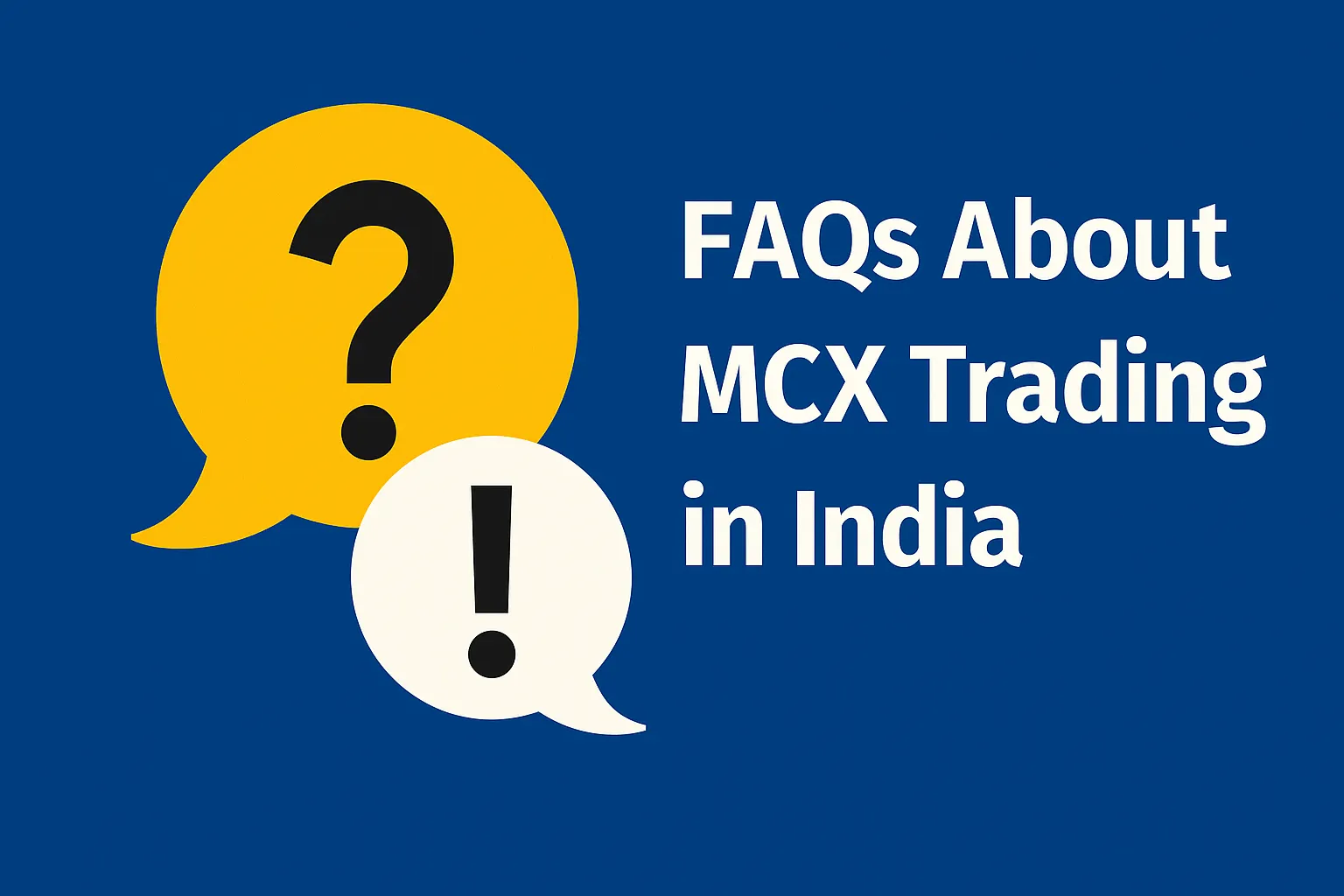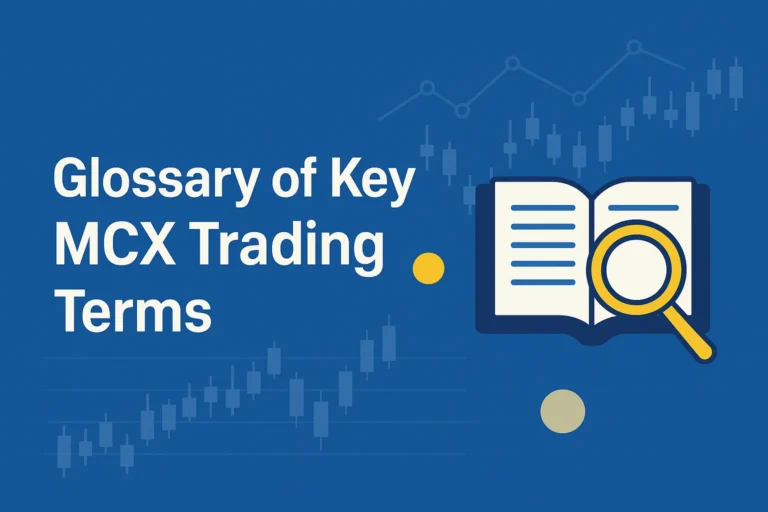FAQs About MCX Trading in India
If you’re new to commodity trading in India, chances are you’ve heard of MCX (Multi Commodity Exchange)—the country’s leading exchange for trading gold, crude oil, silver, and other commodities. While the potential for profit is high, beginners often have questions about how MCX trading works, what is required, and what risks are involved.
Here are the most commonly asked questions and their answers to help you get started with confidence.
✅ General Questions
1. What is MCX trading?
MCX trading refers to buying and selling commodity derivatives like gold, crude oil, and metals on the Multi Commodity Exchange of India using futures contracts.
2. Is MCX trading legal in India?
Yes. MCX is regulated by SEBI (Securities and Exchange Board of India) and operates under government regulations. It is completely legal for retail and institutional investors.
3. Can beginners trade on MCX?
Absolutely. Beginners can start trading with the help of SEBI-registered brokers and educational resources. It’s advisable to begin with liquid and low-risk contracts like Gold Mini or Silver Micro.
✅ Account & Setup
4. What do I need to start MCX trading?
You need:
-
A commodity trading account
-
A linked bank account
-
PAN, Aadhaar, and income proof
-
A broker registered with MCX and SEBI
5. Do I need a Demat account for MCX trading?
Not necessarily. Since most MCX contracts are cash-settled, a Demat account is not required unless you’re dealing with physical delivery contracts.
6. Which brokers allow MCX trading?
Popular brokers offering MCX access:
-
Zerodha
-
Angel One
-
Upstox
-
5paisa
-
Kotak Securities
-
Sharekhan
✅ Trading Mechanics
7. What are MCX trading hours?
-
Morning session: 9:00 AM – 5:00 PM
-
Evening session: 5:00 PM – 11:30 PM (Agri) or 11:55 PM (Non-agri like Gold/Crude)
8. What is the minimum amount needed to trade on MCX?
You can start with as little as ₹5,000–₹10,000, depending on the commodity and the margin required.
9. What is the lot size in MCX?
Lot size varies by commodity. Examples:
-
Gold Mini – 100 grams
-
Silver Micro – 1 kg
-
Crude Oil – 100 barrels
-
Copper – 1,000 kg
10. What types of orders can I place?
-
Market Order
-
Limit Order
-
Stop Loss (SL)
-
Stop Loss Market (SL-M)
-
After Market Order (AMO)
✅ Risks & Returns
11. Is MCX trading risky?
Yes. Like all leveraged trading, MCX comes with market risk, volatility, and the potential for losses if not managed properly.
12. Can I lose more than I invest?
If you don’t use proper stop-loss orders and risk management, your losses can exceed your margin amount. Trade responsibly.
13. Are MCX returns guaranteed?
No. Commodity markets are volatile and speculative. There are no guaranteed profits, and returns vary based on market conditions and strategies used.
✅ Taxation & Compliance
14. Are MCX trading profits taxable?
Yes. Profits are taxed under business income and are categorized as speculative income for intraday and non-speculative for carry-forward positions.
15. Do I need to report MCX trading in ITR?
Yes, you must report gains/losses under the business income section of your Income Tax Return (ITR-3). Audit rules may apply based on turnover and profitability.
16. Are there any charges apart from brokerage?
Yes. Additional charges include:
-
Exchange fees
-
Transaction charges
-
GST
-
SEBI turnover fees
-
Stamp duty
FAQs Recap
| Topic | Key Point |
|---|---|
| Legality | MCX trading is SEBI-regulated and legal |
| Account Setup | Requires KYC and SEBI-registered broker |
| Minimum Capital | ₹5,000–₹10,000 depending on margin |
| Risk Level | Moderate to high – use risk management |
| Taxation | Taxable under business income in ITR-3 |


